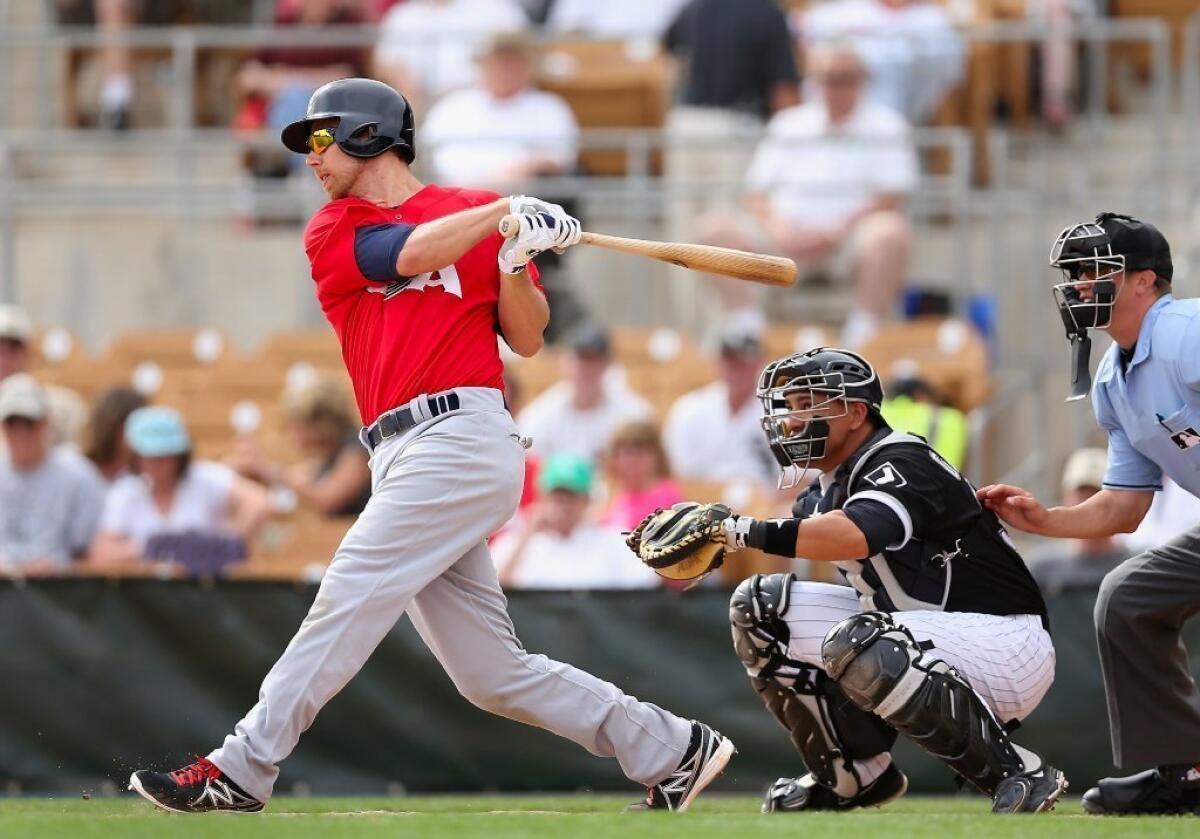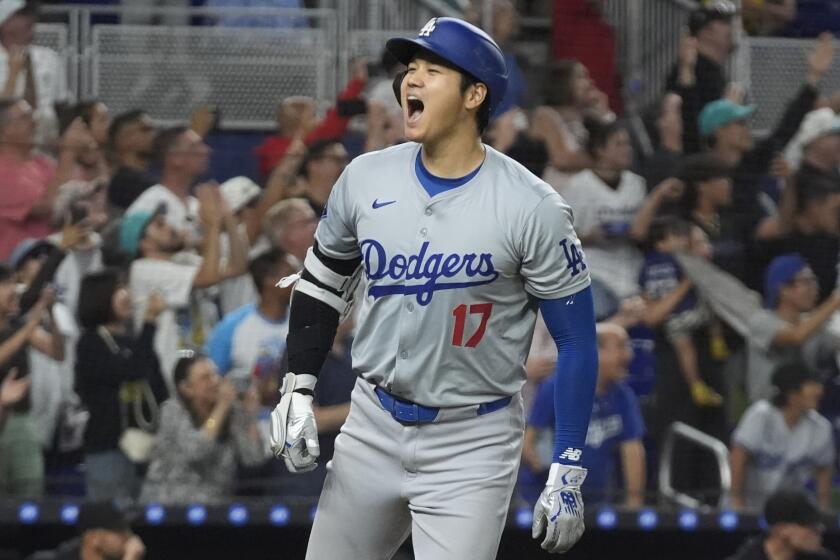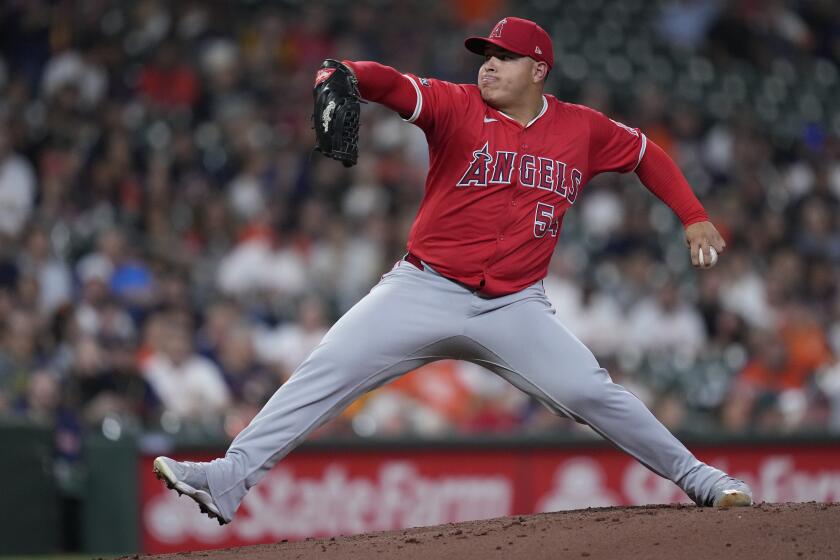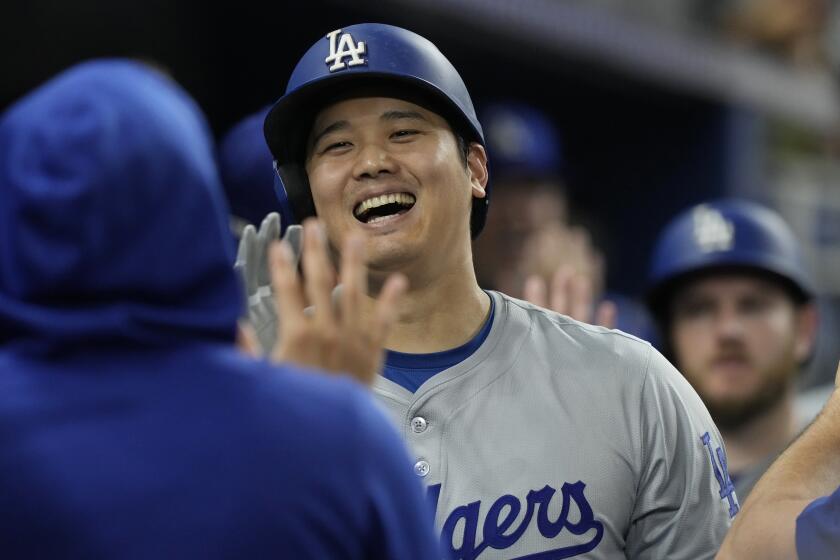Time for a serious U.S. commitment to World Baseball Classic

Mark Teixeira was a late scratch from the Team USA lineup for an exhibition game the other day. No worries, of course, as the United States boasts a gaggle of great first basemen.
Teixeira could have been replaced by Prince Fielder, or Paul Konerko, or Ryan Howard. Alas, none of those guys are wearing the stars and stripes, so the country that invented baseball turned to utility man Ben Zobrist.
The third edition of the World Baseball Classic is underway, with the U.S. making its debut Friday against Mexico. In the United States, the tournament is a classic in name only, an afterthought in the spring sports calendar.
The players ought to change that.
This is not up to the commissioner, or the owners, or the television networks. This is first and foremost about players giving fans the tournament they want to see, when they want to see it.
They want to see the best. If Kobe Bryant and LeBron James can join a Dream Team to compete in the Olympics — an event that confers no significant economic benefit upon the NBA or its players — then Clayton Kershaw and Mike Trout can join a Dream Team to compete in the World Baseball Classic.
The players are financial partners in the WBC, in a joint venture with the owners. With baseball kicked out of the Olympics, the WBC offers players their best chance to popularize the sport abroad, capture the attention of the casual flag-waving fan at home and share the wealth.
Joe Torre, the former manager of the Dodgers and New York Yankees and the Team USA manager for the WBC, knows his fair share about keeping star players happy. Torre says this about the concept of a Dream Team: Forget about it.
“I don’t think it’s realistic, because of our sport,” Torre said. “If you had free substitution like basketball has — everybody can play and everybody can get a taste of it — you could do it. But you can’t do that in baseball.”
Why not?
“We can do more of a Dream Team in the All-Star game, because you can [use guys for] three innings, three innings, three innings,” Torre said. “This is going to be more like a playoff format, and I think you have to put it together like that.”
Zobrist might have the experience of coming off the bench, and Jeremy Affeldt might have the experience of coming out of the bullpen to retire a left-handed hitter. We would rather take our chances with Fielder and Kershaw, even in unfamiliar roles, in the same way Orel Hershiser and Randy Johnson came out of the bullpen for World Series championship teams.
That would irritate major league clubs already concerned about the risk of injury, even though MLB studies show players are no more likely to be hurt in the WBC than in the usual spring-training games.
The clubs can — wink, wink — encourage their players not to participate in the WBC because so many of their peers say, “Meh.” And the clubs pay the big bucks, so quite a few players choose loyalty to salary over loyalty to country. The Japanese WBC roster includes no major leaguers.
But the enduring strength of the players’ union comes from a shared sense of sacrifice for future generations of players. Once the players band together and decide to make the WBC a priority, what are clubs going to say to the likes of Kershaw and Trout? Stay away from the WBC or — what? You might not make the team? We might not offer you to a new contract?
Michael Weiner, the executive director of the union, has not given up on a Dream Team.
“I’d like to think we can get to that point,” Weiner said. “We want as many of the best players to participate in this tournament as possible.”
Weiner said the union has not used its leverage as an owner of the WBC to persuade players to participate against the wishes of their clubs. He said the union does point out how players can profit — as a group from the growth of the sport, and individually from endorsements and promotional opportunities outside the U.S.
“I’m not going to say that we can’t do a better job,” Weiner said. “We spend a lot of time talking with the players about the WBC, and about the internationalization of the game. To say we’re leveraging players, we haven’t done that.”
If MLB and the union want to grow the WBC rather than hide it, play the championship round during a week in July. With the union leaning on the best players to participate, the tournament would blossom with a four-team final — better yet, an eight-team final.
Get the tournament out from beneath the shadow of March Madness, cancel the All-Star game once every four years, and play the finals when the American sports landscape is otherwise barren. Each owner might have to play a doubleheader once every four years, an infinitesimal sacrifice when annual MLB revenue is $8 billion.
The Americans run this tournament. The pitch counts benefit the U.S., not the Latin countries that play ball all winter. The U.S. gets the home-field advantage.
The WBC is a smashing success just about everywhere but here. If the players and owners balk at putting on the best possible show in a land where baseball is alleged to be the national pastime, take the show to a land where it really is.
twitter.com/BillShaikin
More to Read
Go beyond the scoreboard
Get the latest on L.A.'s teams in the daily Sports Report newsletter.
You may occasionally receive promotional content from the Los Angeles Times.











